Websites
With BentoBox, Little Tart Bakeshop Brings Neighborhood Charm Online
July 21, 2022
As the popular Atlanta bakery gained national recognition, it needed a website specifically built for restaurants to extend hospitality.
Little Tart Bakeshop in Atlanta, GA, started as a farmers market stall in 2010 but grew quickly, opening its first brick and mortar in 2011 and its second location down the street three years later.
Managing two storefronts and three weekend farmers markets, all within a five-mile radius, Little Tart grew a loyal local customer base. Additionally, baker and owner Sarah O'Brien gained national attention from the James Beard Foundation, Star Chefs and Eater, increasing Little Tart’s social media following.
The more its social media presence grew, the more Little Tart realized the limitations of social media as a communications and operations tool. It needed to supplement its social presence with a website that clearly disseminated information: A single source of truth containing everything guests need to know.
"We are hyperlocal and in the community all the time," says Little Tart Bakeshop Director of Operations Amy Gregg. "But we needed a landing platform for people who have questions and provide answers or direct them to the right avenue to reach us."
In 2017, Little Tart made the switch from Squarespace to BentoBox. The partnership started with a custom-designed website that modernized the bakery and cafe but maintained its neighborhood charm. The new platform also gave Little Tart the tools to increase online profits as it grew into an established and recognized brand.
Partnership Overview & Results
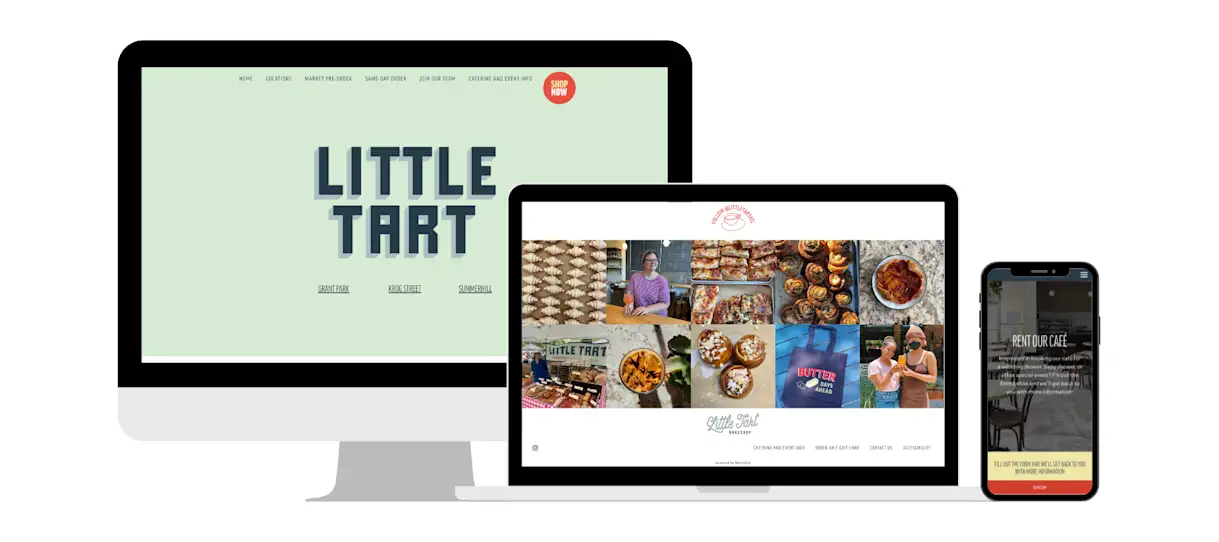
73k+ website visitors
53k+ mobile visitors
470+ website forms submitted
$340k+ direct online revenue
$42k+ online holiday revenue (Nov./Dec. 2021)
Engaging the Community Online
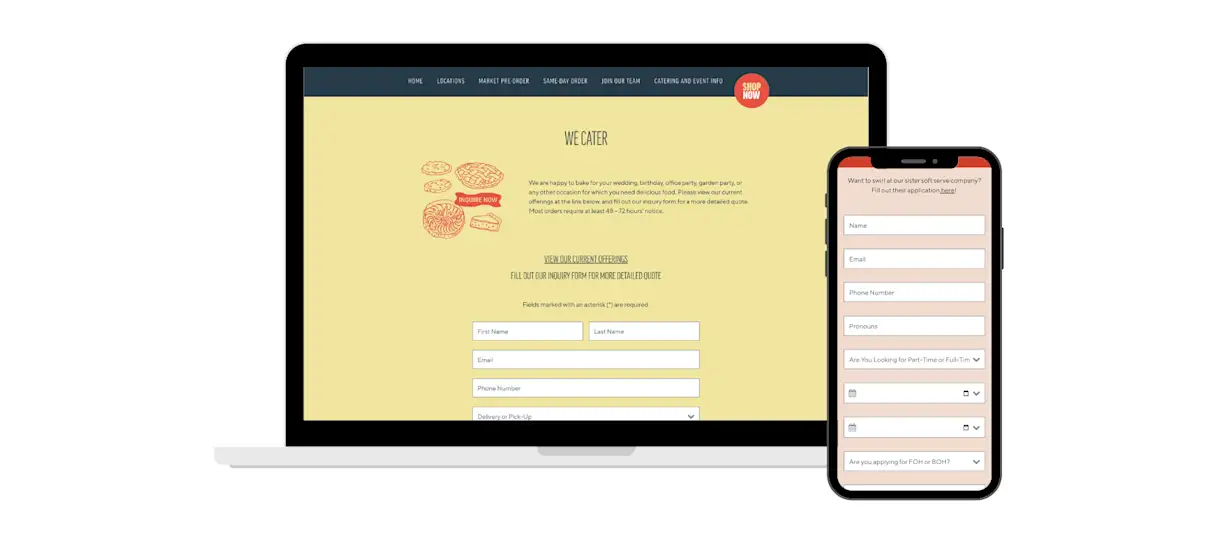
When it was smaller, Little Tart could keep guests informed through in-person communication, social media and a limited website. But as it grew and more customers actively searched it out, the disconnect between those channels became an issue. If customers viewed the website instead of seeing the latest Instagram post, they may have seen outdated information. In other cases, customers would come to the website with specific questions, but the website had no way to answer them.
When Little Tart brought this problem to BentoBox, its dedicated Onboarding Manager suggested it build a website with embedded forms for guests to fill out. This allows guests to ask specific questions or make specific requests, which Little Tart’s team can answer in a controlled and timely manner. There are separate forms for catering, private events, hiring and general contact requests.
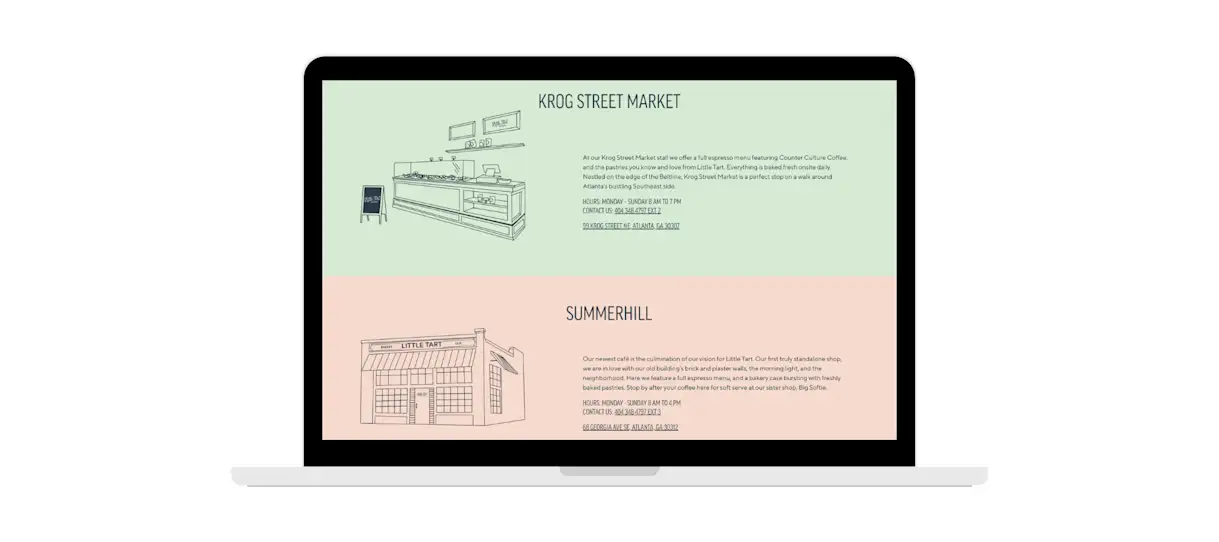
But the website didn’t just make it easier for guests to communicate with Little Tart. It also made it easier for them to find up-to-date information: Hours of operation for its storefronts, weekly schedules for its farmers markets, holiday hours and pre-order menus, etc. Most importantly, the website allowed for pop-up alerts to announce real-time updates, filling the gap of lost information from social media and storefront signage.
"The first time we closed for an extended time, we posted on Instagram and put signs up on our stores, but the information was not received well," Gregg remembers. "After that, we started using the pop-up alerts for all immediate, business impacting information — front and center."
The website doesn't just set more explicit expectations about on-premises operating hours; it also allows Little Tart to capture e-commerce orders 24/7.
Maximizing Online Profit, Minimizing Staff Burnout
When you’re running three cafes and managing 60 employees, you don’t want to be thinking about the inventory count on a pie. You want to be focused on what’s in front of you.

Amy Gregg
Director of Operations, Little Tart Bakeshop
Before BentoBox, Little Tart took orders in two ways: in-person or over the phone. Its Squarespace website did not have the features it needed to reliably take orders online. This slowed down its process and limited its revenue during all seasons — but the impact was especially pronounced during its busiest time of year, the holidays.
Little Tart’s unique holiday menu includes an assortment of whole pies, pastry boxes and cookies. With BentoBox, it can sell those products through its merchandise store, setting order deadlines and managing order inventory through a user-friendly back-end. Additionally, orders placed could be shipped, expanding generated revenue.
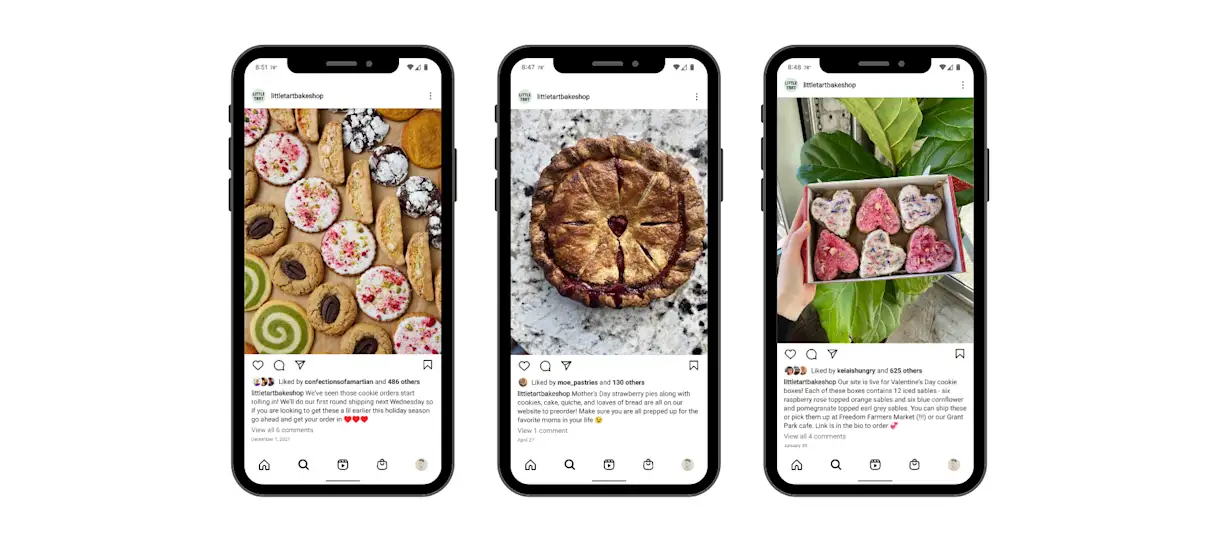
In 2021, Little Tart drove more than $40k selling online baked goods during holiday season — but more than that, it drastically simplified the process of fulfilling holiday orders. Instead of multiple team members in different locations managing orders, one person now oversees them in a central location.
“Now that we have this great website setup, we're able to direct all orders through it which makes it so much easier to process,” says Gregg. “I know that's only a couple of months of the year that we actively use it, but that's where our profit comes from.”
It’s hard to overstate the impact this change has had on Little Tart’s team members. The increased efficiency of online orders has minimized staff burnout and allowed them to focus on other things. Plus, the increased profits Little Tart drives during the holiday season go directly to company-wide bonuses and maintaining employee benefits — which is an extremely important part of the business to O'Brien.
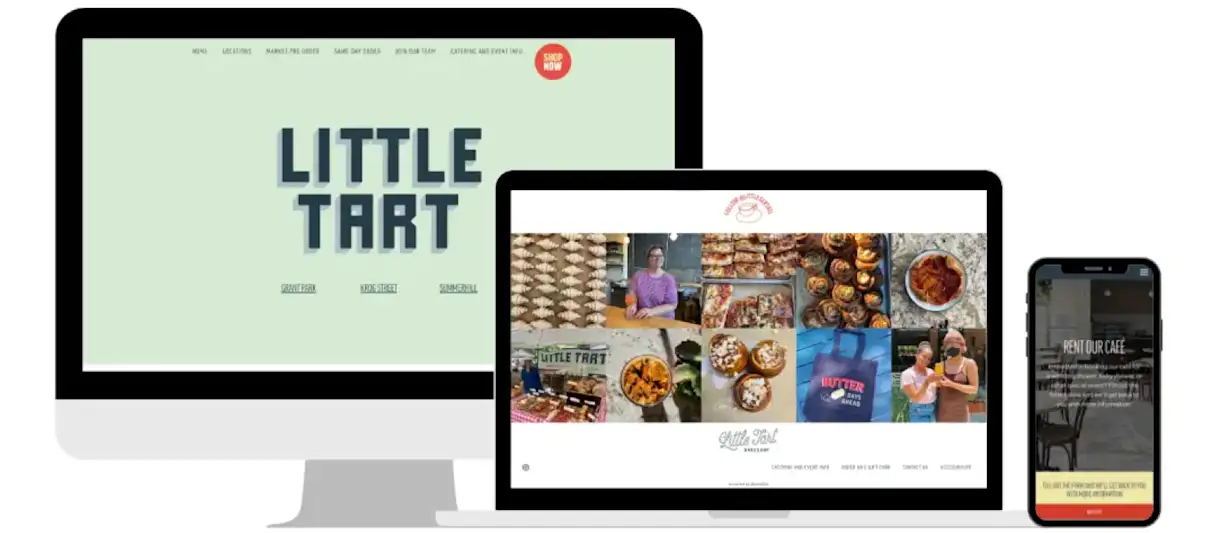
Building off that success, Little Tart also uses its merchandise store to sell branded swag during off-peak seasons. Its impressive assortment of baking-themed shirts, hats, totes, pins, postcards and more allows it to drive extra revenue while connecting with passionate baking lovers in its community.
Refreshing Online Brand with Modern Charm
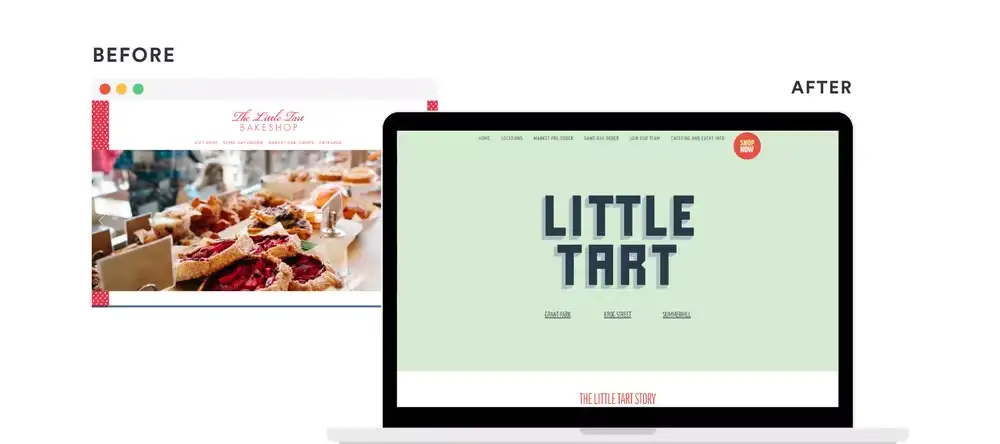
After 11 years with the same brand aesthetics, Little Tart was ready to refresh its look and feel. In the decade-plus since it started, it had grown from a stall at a farmers market to a nationally recognized bake shop with three brick and mortar storefronts — but its brand still reflected what it was in 2010.
"We needed to bring Little Tart to where we are now," says Gregg. "It's very important to us to do the work and do it well. We were still an early 2000s farmers market image and needed a more lasting aesthetic."
From a website perspective, the brand refresh had two main goals:
Modernize the aesthetic while maintaining the brand’s neighborhood charm.
Do so without changing the structure or functionality of the website.
After Little Tart’s design team created a new logo and color palette, BentoBox designers suggested unique and clever ways to apply the new brand ethos to the website.
Beyond refreshing the colors and typography to align with digital best practices, they added illustrations and animations to pages throughout the site. Rather than a static experience, the combination of images, drawings and motion made the website feel interactive and immersive — an extension of Little Tart’s face-to-face hospitality. Better yet, this solution allowed the team to easily refresh existing pages rather than changing or removing them.
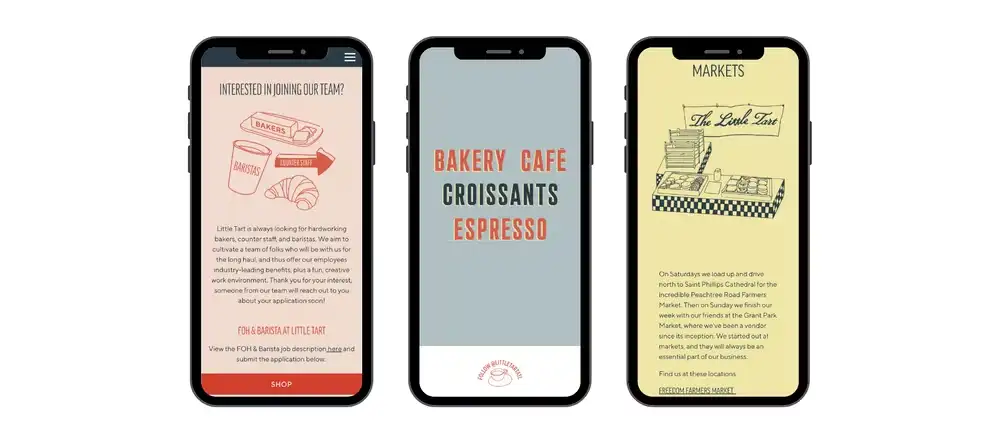
Little Tart first came to BentoBox looking for a better way to communicate with guests. It found that, but as the partnership grew, it also found a way to launch new revenue streams, improve operations and extend its brand online. With the support and partnership of BentoBox, Little Tart creates a seamless guest experience and unifies business operations without compromising its well-known reputation as a neighborhood bakery.

BentoBox Marketing & Commerce Platform
Deliver Smarter Hospitality
Want to stand out online, bring in more money, engage your diners, and streamline operations?
Recommended
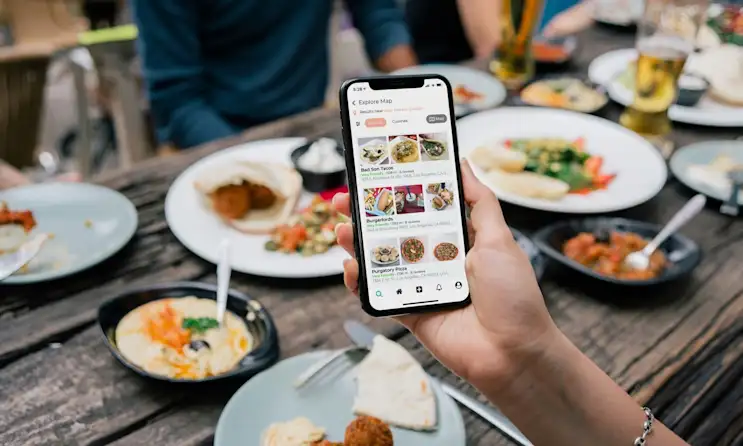
Websites
No, Your Restaurant Doesn’t Need An App
July 10, 2024
Debunking a common myth about online ordering.

Design Inspiration
The Best Hotel Restaurant Websites of 2024
March 22, 2024
The most beautiful, revenue-driving websites for restaurants, bars, bakeries, and other hospitality businesses located within hotels.

Websites
How to Choose a Restaurant Website Design Company
May 20, 2021
What to look for when searching for a restaurant website design partner.

